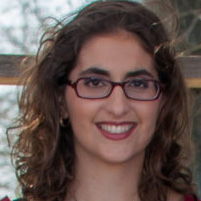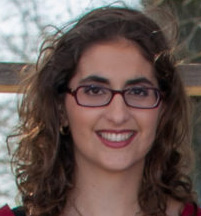
That's what the UC San Diego Guardian student newspaper called Computer Science and Engineering assistant teaching professor Mia Minnes in a profile and interview with Timothy Deng, published on January 30. Born in Israel, Minnes moved at age 7 with her familty to Vancouver, and went on to get undergraduate degrees in engineering and philosophy from Queen's University in Ontario (where she recalls being one of only three women in all of her classes). Minnes later earned her Ph.D. from Cornell University in mathematics. While at Cornell she met and married Todd Kemp, who was several years ahead of her. When he did a postdoc at MIT, she commuted between Cornell and Boston, and together they landed jobs at UC San Diego in 2009, initially in the Mathematics department -- he as a professor, she initially as a postdoctoral scholar.

professor Mia Minnes
As Minnes told The Guardian, "the opportunity to be a teaching professor in the CSE deparment came up, and I was thrilled because it was a perfect fit for me. My work is right at the interface of the two, so I'm just as happy talking to mathematicians as to computer scientists about my work."
In CSE, Minnes teaches courses on mathematical logic, basic set theory and computability theory. For her research, she "branched out" to study computer education through the use of massive open online courses (MOOCs). Together with fellow teach professors Leo Porter and Christine Alvarado, Minnes created a MOOC designed specifically to be taken by someone applying for a software engineering job.
"We had a blank canvas to put in all the best practices we knew of about teaching, like all of the cool pedagogical ideas we had but didn't want to try on 200 innocent students in our classroom whose grades really mattered," Minnes told The Guardian. "We could be a little more experimental without scaring them."
Minnes admits to feeling like an impostor at times, caught between math and computer sicence. Asked how she overcame the feeling, she responded: "Never? I don't know many people who overcome it... I think that what's important then is to say, 'I'm doing my best, and I keep improving and that I can't be an imposter being me. As long as I'm true to me, then I am doing what I need to be doing.

